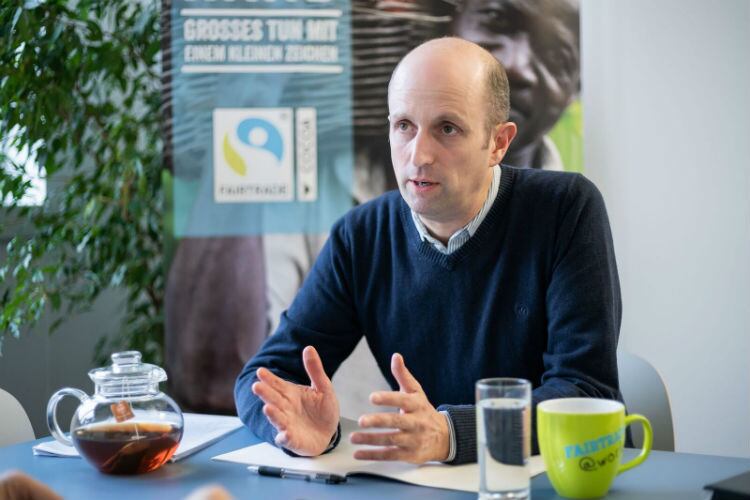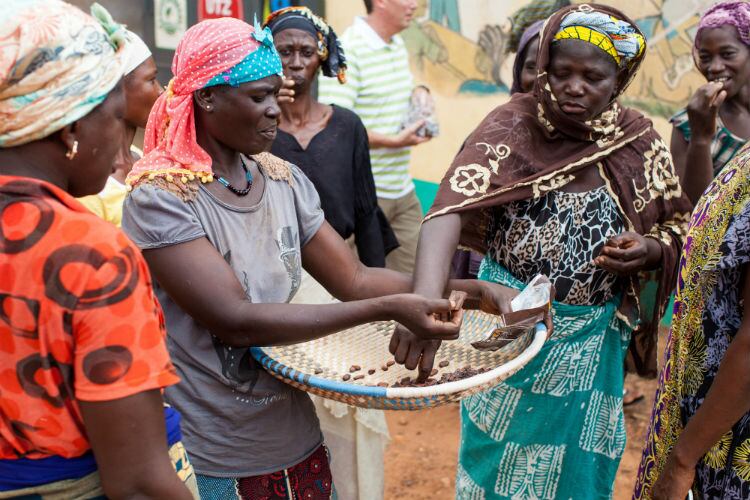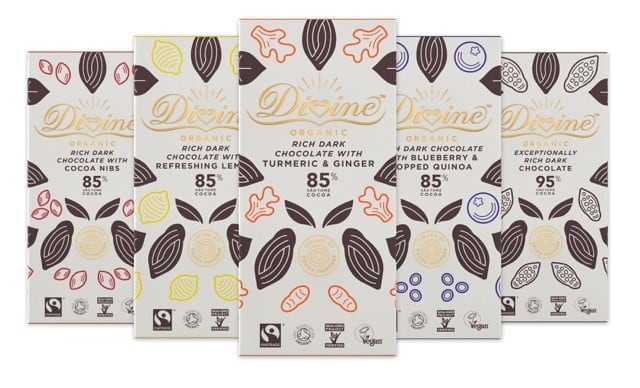Confectionery News: Why is it important to raise Fairtrade’s Minimum Price for cocoa?
Jon Walker: The Fairtrade Minumum price is a critical element of the Fairtrade methodology. I think the decline we saw in the price of cocoa at the end of 2016 and beginning of 2017, from which the market still hasn't fully recovered, illustrates the importance of the safety net the Fairtrade Minimum price provides.
CN: How do you think the price rise is going to be met by the cocoa industry in general?
JW: So, we define the Fairtrade Minimum price by a process of consultation. This is the end of two years’ work on this project. We've been very lucky to have a huge amount of time from farmers, commercial partners, civil society and governments around these consultations. So, I hope that this is received in a very positive way by those actors. There was very strong support from producer organizations during the consultation for the proposals we put forward, clearly it's not without risk when Fairtrade moves from $2,000 per metric tonne to $2,400, but we think this is a critical step for us given the levels of poverty for farmers in West Africa, particularly.
CN: Fairtrade is also raising its Premium Payments to farmers (from $200 to $240), how is this going to help?
JW: So, the Fairtrade Premium is an amount of money that goes directly to the producer organization. There are no deductions from that money and the producer organization has power over how the money is spent at General Assembly. The reason we think the Fairtrade Premium is a really important part of Fairtrade standards’ is this is the money that leads those producer organizations to become strong and viable organizations, and also good business partners.
CN: The changes are planned for October 2019. Will it be a smooth transition?
JW: This is the product of two years of consultation. I sincerely hope we've worked through all of the issues through the consultation programs. I'm sure there will be some things we find out in the next 10 months, but we’ll have to deal with that at the time.
CN: The price of Fairtrade’s organic ‘differential’ for cocoa is going up to $300 what’s the strategy behind organic?
JW: Fairtrade sales have been growing, we grew 58% from 2016 to 2017 and within that Fairtrade organic sales grew along with Fairtrade conventional sales. We believe the Fairtrade organic sales resonate with the market. One of the key drivers behind this new Fairtrade organic differential of $300 per tonne was from the producer organization where they said there are additional costs to organic if we want to maintain organic farming in the future. You need a differential, which sits on top of the market price, or Fairtrade Minimum Price, whichever is higher, and that's why this concept was introduced into cocoa – it already exists in coffee and has done for some time.
CN: What is the Fairtrade Strategy?
JW: The living income reference price we have also released is is $2,668 per metric tonne of farmgate price now for comparison, the current approximate farmgate price in Côte d’Ivoire is $1,327 per tonne. Now, our new Fairtrade Minimum Price will make an impact on that. If it was enacted today, the de facto farmgate price for farmers would rise to $1,600. However, the size of the gap is clear between the living income reference pricing were prices are currently, or whether they’re market or Fairtrade prices. Fairtrade won't be able to bridge this gap on its own. It's going to be the work of the industry, the work of consuming and origin country governments, and of consumers, so I think there does need to be work done on bringing the concept to life for all partners from a Fairtrade perspective. We would wish to share the results with the community that's growing around living income so they can learn from the experiences we are having, but also we can learn from the experiences that have been generated from other actors.
CN: Joseph Aido, CEO of the Ghana Cocoa Board, said recently at the WCF conference that the ‘market is still unethical and unfair’ – would you agree or disagree with his comment?
JW: I totally agree. You'll find very few people who disagree with the idea that farmers should earn a living income. It's a very long road to the work that needs to get to that space, but people don't disagree with the concept and also I don't think that we, as consumers, would want our enjoyment of chocolate to be at the expense of others living in poverty. We are working very hard to give farmers a more equal voice within the supply chain. The highest authority in Fairtrade is the General Assembly where producers get 50% of the votes. The concept of minimum pricing within Fairtrade we think is critically important because it provides a safety net for farmers. We haven't totally succeeded yet, that's work that's going to be ongoing for some time.
CN: Where do you see Fairtrade’s role as the organization comes up to celebrating it 25th anniversary in 2019?
JW: We are at a stage where there is a community that has helped define what a living income is. The next stage is how do we reach that living income. Fairtrade will not be able to do this alone, but we're absolutely committed to working with other actors to reach that objective and I think that's the next big thing for cocoa sustainability.
I became senior advisor of cocoa at the beginning of January and have spent seven years working at Fairtrade. It’s an amazing place to work. I think the organization is becoming more targeted, more focused and is investing more in monitoring evaluation, which provides us with an evidence-based understanding as we move forward.
We need to measure the success of our impact based on the household income of farmers and their access to basic human rights, such as a living income to feed yourself and your family, house your family, have access to medicines and provide an education for your family. These are the basic human rights, this is what we are seeking to achieve at Fairtrade.




